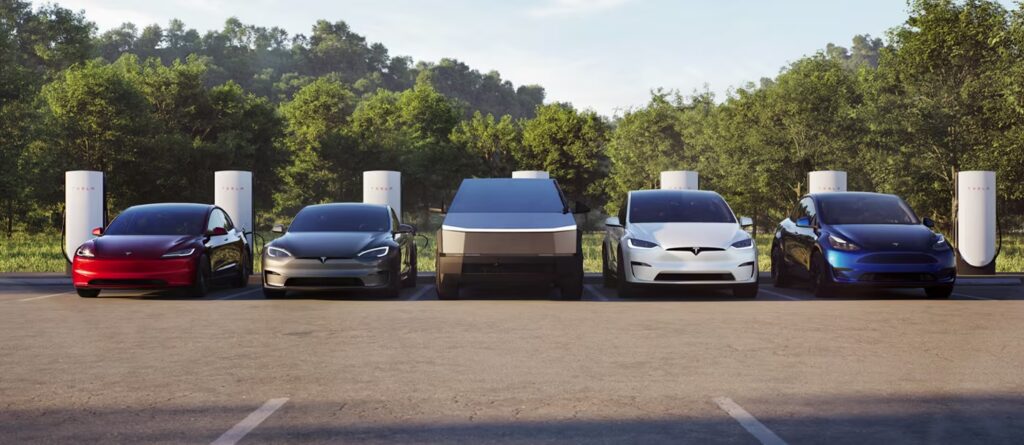Tesla buyers in the U.S. just received some exciting news regarding the $7,500 federal EV tax credit. Contrary to fears of its imminent disappearance, updated guidance from the Internal Revenue Service (IRS) now allows customers who enter into a binding contract for an electric vehicle and make a payment before September 30, 2025, to be considered as having “acquired” the vehicle. This means they are eligible for the $7,500 credit even after the federal incentive expires at the end of next month.
However, there is a catch. The credit will only be available once the car is “placed in service”, necessitating delivery and a time-of-sale report from the dealer. Despite this, customers can delay delivery after securing acquisition in advance, effectively extending access to the credit beyond the official cutoff date.
This development comes at a crucial time for Tesla and other automakers as demand for electric vehicles has skyrocketed this summer with buyers rushing to take advantage of the incentive before it disappears. Tesla has already extended delivery estimates for the Model 3 and Model Y in the U.S., indicating order backlogs. With the updated IRS guidance providing shoppers with more flexibility, the rush for electric vehicles and the $7,500 credit is expected to intensify.
For customers, this guidance means less pressure to settle for immediate choices. They can now secure the credit and take their time selecting configurations, trims, and colors, knowing they won’t miss out on the $7,500 incentive.
With the deadline drawing near, a surge of new contracts is anticipated to be signed as Tesla and its EV competitors gear up for a final tax-credit rush. To lock in the $7,500 federal EV tax credit before it expires, customers are encouraged to order their Tesla today.
In the Featured category, other articles include “Tesla Hints at Chicago Robotaxi Launch with New Job Listings”, where Tesla appears to be preparing for a Robotaxi launch in Chicago, and “Tesla Launches 6-Seat Model Y L in China”, marking the debut of a stretched SUV variant of the popular EV. Additionally, “Tesla Model 3 Promo in Canada: Free Supercharging for Life” showcases a new promotion in Canada offering free lifetime Supercharging for anyone purchasing a new Model 3 from inventory.
Stay updated on the latest Tesla news and developments by exploring the diverse range of articles in the Featured category. The world of technology is constantly evolving, with new innovations and advancements being made every day. One of the most exciting developments in recent years is the rise of artificial intelligence (AI). AI has the potential to revolutionize the way we live and work, with applications ranging from self-driving cars to virtual assistants.
One area where AI is already making a big impact is in healthcare. AI has the potential to transform the way we diagnose and treat diseases, making healthcare more efficient and effective. For example, AI algorithms can analyze medical images such as X-rays and MRIs, helping doctors to detect abnormalities and make more accurate diagnoses. AI can also help to predict which patients are at risk of developing certain conditions, allowing healthcare providers to intervene early and prevent serious illness.
In addition to improving diagnosis and treatment, AI is also being used to streamline administrative tasks in healthcare. AI-powered chatbots can help patients schedule appointments, answer medical questions, and even provide virtual consultations. This reduces the burden on healthcare providers and allows them to focus on providing high-quality care to their patients.
AI is also being used to develop new drugs and therapies. By analyzing vast amounts of data, AI algorithms can identify patterns and trends that humans might miss, leading to the discovery of new treatments for diseases such as cancer and Alzheimer’s. This could potentially revolutionize the pharmaceutical industry, making drug development faster and more cost-effective.
However, with all of these advancements comes the need to address ethical and privacy concerns. AI algorithms are only as good as the data they are trained on, and there is a risk of bias or inaccuracies if the data is not properly curated. Additionally, there are concerns about the potential for AI to replace human jobs in healthcare, leading to unemployment and a loss of human touch in patient care.
Overall, the potential benefits of AI in healthcare are vast, with the ability to improve diagnosis, treatment, and patient care. However, it is important to proceed with caution and ensure that AI is used in a responsible and ethical manner. By harnessing the power of AI in healthcare, we can revolutionize the way we approach medicine and improve the lives of patients around the world.

